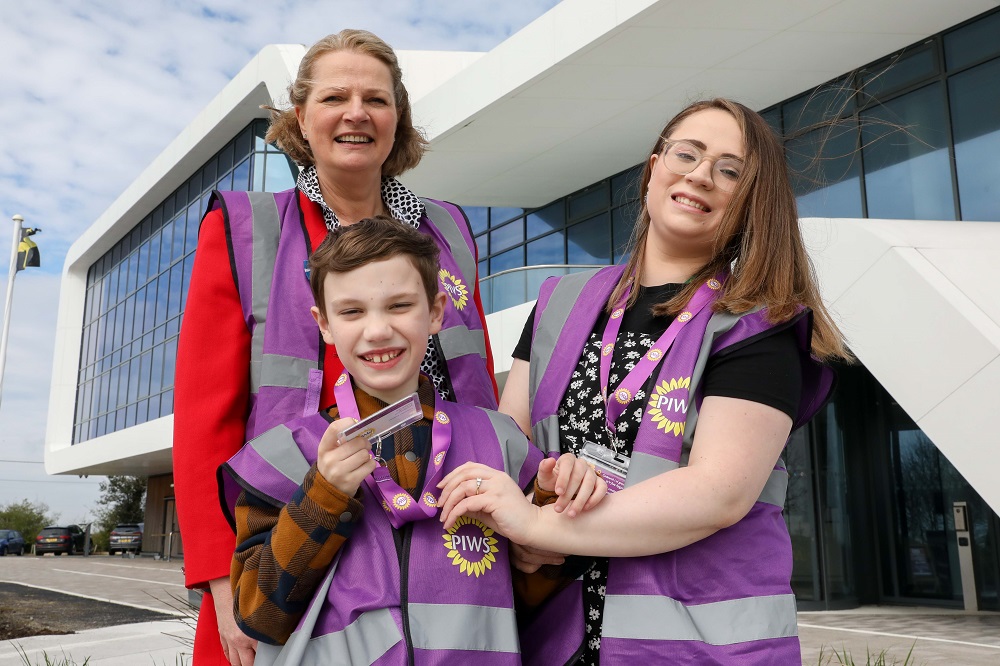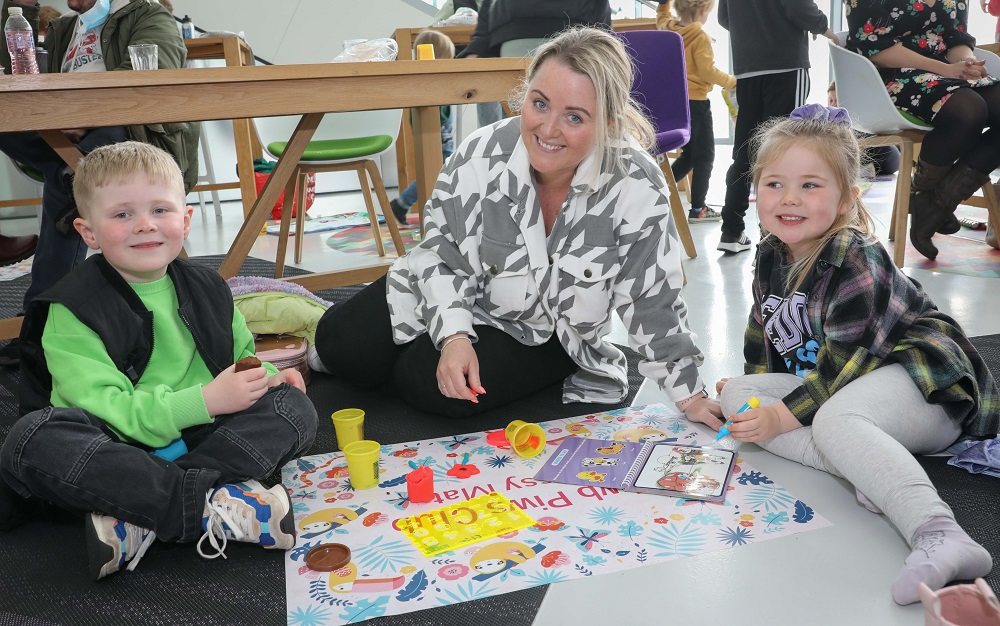New ‘Disability Passport’ launched to support tourism providers across North Wales

A high sheriff has unveiled a major campaign helping tourist businesses across North Wales to cash in on spending by visitors with a disability or additional needs.
Mum-of-three Davina Carey-Evans, whose 27-year-old son Benjamin has severe autism, said she had spent a lifetime visiting leisure attractions with her son only to realise on arrival they were unsuitable for his needs.
As Gwynedd’s new High Sheriff, Davina is determined to help businesses improve accessibility so other families – especially those with hidden disabilities – can enjoy the full range of North Wales’s excellent leisure facilities.
Davina, who hails from Criccieth and now Anglesey-based with event and marketing experience, set up PIWS (Welsh for purple) as a Community Interest Company to help businesses tap into the spending power of disabled people in the UK.
In partnership with the national charity Nimbus Disability, she has launched a new campaign to boost awareness and registration of the Access Card among the hospitality and leisure industry in North Wales.
The card informs leisure providers quickly and discreetly about the support holders may need when accessing their attractions and services through a range of disability or impairment symbols.
The card acts as a ‘Disability Passport’ and highlights sensitively the barriers visitors might face and the reasonable adjustments business owners may need to make to welcome them.
The campaign was unveiled at M-Sparc Science Park on Anglesey today (Wednesday, April 13) supported by families with additional needs who will benefit from improved access to North Wales’ leisure attractions.
The purple pound
Davina said: “I’ve had a lifetime of trying to visit locations where people have only catered for wheelchair users. This is one of the reasons why I set up PIWS which represents the so-called ‘purple pound’ – the spending power of people living with disabilities in the UK.
“Accessible tourism is worth an estimated £15 billion per year in the UK alone and yet only 10 per cent of businesses in Wales – if that – are targeting that audience.
“There’s a fear among businesses of saying they cater for a disability because they don’t want to get it wrong but instead find it easier to do nothing.
“Leisure businesses need to offer more than just a policy or mission statement on their website with no real understanding of what it means. This is not about giving anyone a hard time. Attitudes need to change.
“What we are trying to create with PIWS is an opportunity for businesses to start their journey in a realistic way that they can manage without huge expense and to use the tools we are putting together.
“As they gain that confidence, both PIWS and people with disabilities will constructively support them.”
Pilot project
Davina has been running a pilot project on Anglesey for the past year which has involved the launch of a PIWS Holiday Club providing quiet safe spaces for families with additional needs at popular venues and including the annual Anglesey Show.
The Club has registered more than 100 families already and the number is growing.
“PIWS represents a safe space for families but equally it’s important to reach businesses and help them to understand that they have to cater for these audiences and become more inclusive,” said Davina.
“Our families go out visiting places all year round and it’s important for me to understand and listen to their challenges and find out if it’s still as bad as when my children were growing up and unfortunately it seems to be.
“I’m a family of five and you wouldn’t think there were two members of my family who have additional needs. You couldn’t pick them out of a photograph.
“My son has autism. He doesn’t speak and has two-to-one care. It has been very challenging for him growing up but you wouldn’t know to look at him.
“I have another son, Oscar, who has ADHD and really struggled with school. He ended up with a condition called Ulcerative Colitis where the colon becomes inflamed. He subsequently got Type 1 diabetes and had to have all of his colon removed. Interestingly, when he asks for a sugar free drink, he rarely gets it, this has serious life-threatening consequences for a diabetic.
“As a carer, I would only ever visit certain places because of the accessibility factor whether that was helpful staff, toilets or something else. I would continually go back to the same places because it’s actually too scary to go to new places.
“What I’m saying is if businesses get it right, you can build up this audience and they will keep on coming back. It’s as simple as that.”
Davina said businesses needed to move away from thinking wheelchair use is the only form of access restriction.

The Access Card helps educate hospitality and leisure providers on the variety of impairments and accessibility issues their customers may face, enabling them to make small adjustments to improve the visitor experience and meet their obligations under the Equality Act.
“There are so many different campaigns, it’s very confusing and daunting – even for me a trained Accessibility Champion,” said Davina.
“Our aim is to break it down into a five-year plan starting with awareness raising and encouraging businesses to sign up free of charge and encouraging people with disabilities to visit these places giving their constructive feedback.
“If they just accept this card, that’s a beginning and a step in the right direction. It’s giving them the tools and supporting them to support their customers.
“This is coming from the ground upwards – from people with disabilities who want everyone to make a difference and to change attitudes.”
Visit Wales
The campaign, which has already won the support of Visit Wales and a host of top tourist attractions, aims to make businesses aware of the information they should be supplying to visitors to make their experience enjoyable. This could be as simple as a video uploaded to their website making visitors aware of their location and facilities.
PIWS also wants businesses to maintain any existing facilities they have to boost access and ensure their staff are fully versed on what they should do to help disabled visitors.
“It’s ridiculous how many people don’t realise they already have a quiet space they can offer families or a toilet that’s sufficient for some but not all, it’s all about giving that information and developing based on customer demand,” said Davina.
“We have a training package ready to create a cohort of Accessibility Champions who can go back to their businesses and pass on their training and skills to their colleagues. This will form the next stage of the campaign.
“If a business is trying to make a difference and slowly making improvements, that’s a great beginning.”
Support our Nation today
For the price of a cup of coffee a month you can help us create an independent, not-for-profit, national news service for the people of Wales, by the people of Wales.





North Wales is Cymru. Other than that we should support the disabled, especially kids.